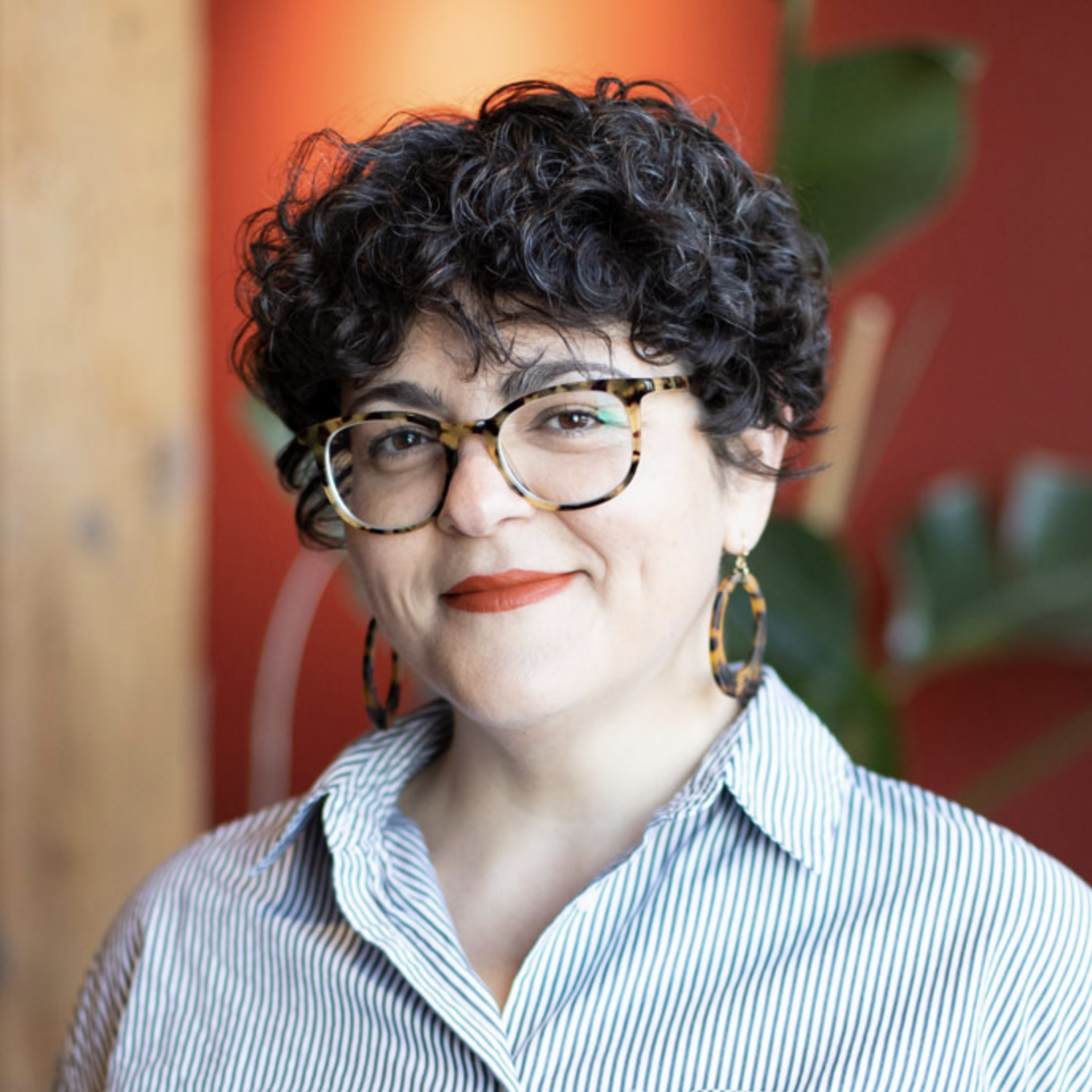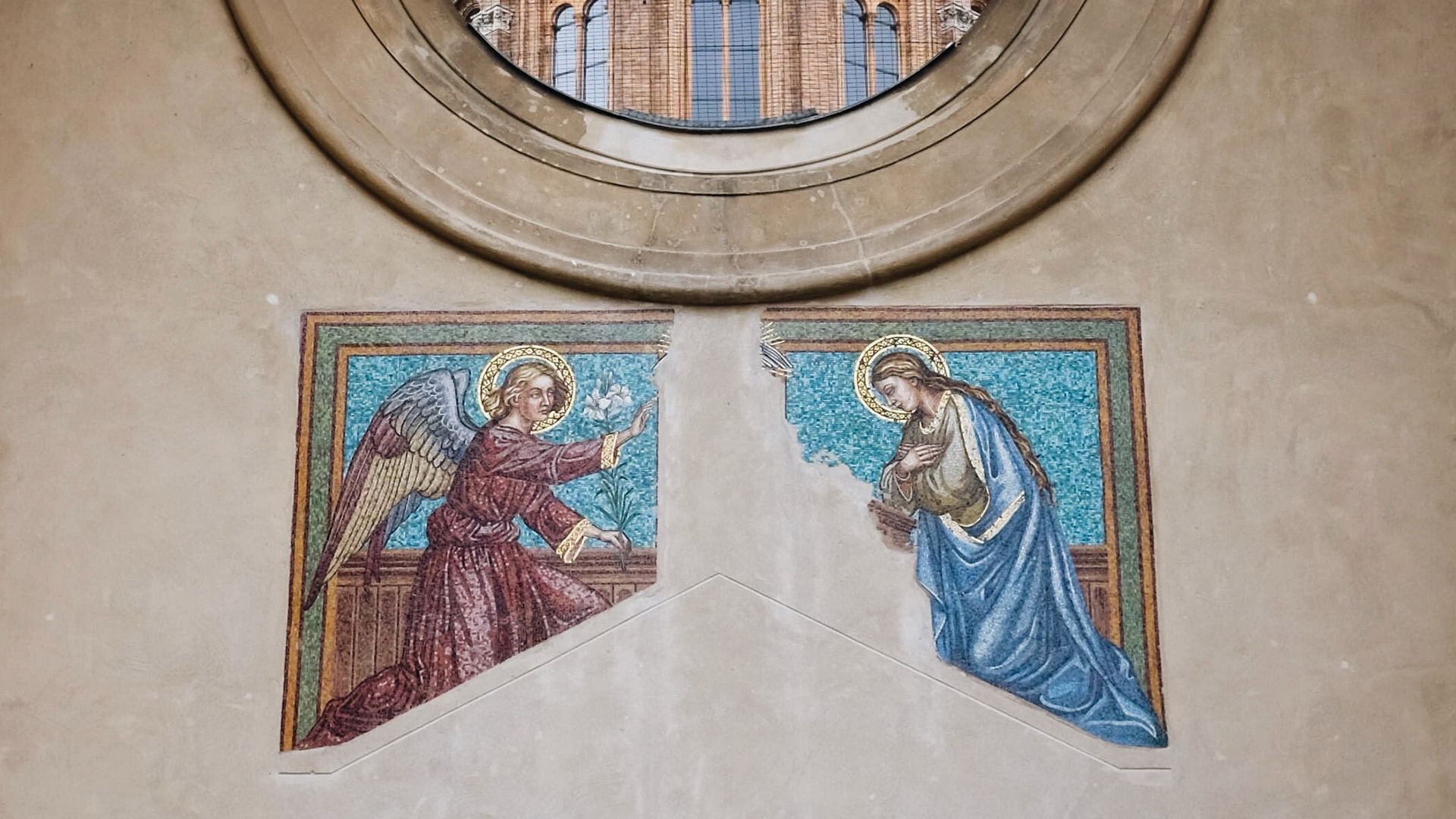This week we’re continuing to process the impact of the United Methodist Church’s recent vote on Human Sexuality—including Kate Davis’s reminder that even when the body of Christ is wounded, it is not broken and it is not without hope; Dr. Derek McNeil’s reflection about global complexity and the pitfalls of ethnocentric theology; and Elliot Huemann’s vital reminder that beneath every “issue” is a very real human with a very real story.
Here, Jennifer Fernandez, Assistant Instructor, argues that particular churches or denominations should not be equated with the whole of Christianity. Whatever your response when you are harmed by or disagree with an institution—whether you stay to grieve and work and effect change, or leave in search of a home elsewhere—the way of Jesus and the call to live as people of justice and relationality remain the same.
Let’s stop conflating church for Christianity.
There’s a Twitter post I read recently that reads, “It is not helpful to tell LGBTQ United Methodists they need to find ‘another church.’ Home is home. The UMC belongs to them as much as it belongs to straight Methodists.” My immediate thought was, “‘Home is home’? What does that mean?”
Sometimes “home,” for some people, is a place where you are hurt, abused, told you don’t matter, and that your very existence is an abomination. If a child grows up in such a home, we immediately want to do something to change that child’s circumstances. We want to provide comfort, care, grace, and love. We demand justice. So why do we allow Christ’s “home” to do the same thing?
In “Why I Don’t Fear Denominational Schisms,” Diana Butler Bass explains, “In the decades before the Civil War, three of the nation’s largest Protestant denominations—Baptists, Presbyterians, and Methodists—split over slavery, biblical interpretation, and abolition. […] As the churches divided over slavery then, so they are dividing over sexuality and gender now. Many of the biblical arguments and hermeneutic approaches once used to support slavery are now employed to reject the humanity, gifts, and dignity of women and LGBTQ persons. If you read 19th century sermons or tracts from Southern Presbyterians, for example, you only need to swap out a few words and you have a blog about how the Bible doesn’t allow women to preach or gay and lesbian couples to marry.”
Too often we conflate all Christian churches and denominations for Christianity, when really they’re a bit of a Venn diagram. Sometimes they’re the same, sometimes they’re not. Our jobs as consumers of church is to know the difference. Christianity always demands that we call out injustice—sometimes church does this. Christianity always tells us to set a place at the table for everyone—sometimes church does this. Christianity urges us to live into right relationality that is reflective here and now of the kin-dom of God—sometimes church does this. When church and Christianity don’t line up, we the people get to say “do better.” Sometimes, demanding that church do better means staying and not leaving your ground, it means writing letters, it means protesting, it means finding new platforms and new coalitions, and sometimes it means leaving. It means saying, “I will not let you hurt me in the name of God. I will not let you abuse me. I will not sacrifice my deep and true knowing of God in the name of a denomination that mistreats me.”
Butler Bass reminds us that denominations are not the same as theology, and I agree. When we begin to idolize a structure like a denomination, when we begin to turn a blind eye to the suffering that those denominations are causing, we are sacrificing Christianity. That said, it’s painful work to acknowledge that “home” isn’t safe. It’s painful work to acknowledge that we have been harmed in that “home.” And it’s painful work to acknowledge that we have let others be harmed there and done nothing. Our denominational affiliations often comfort and give us a sense of belonging. They’re our Hogwarts house, where we feel seen and where we feel that we’re among others who experience and see the world the same way we do. Our denominations often give us a sense of tradition, a sense of rootedness. But sometimes, that’s not the case—or rather that’s not the case for everyone in that home. Home sometimes means a place where you have both sacred, beautiful memories and shattering, impossible realities. Home sometimes means a place where you once felt completely loved and accepted, and then when you came out/transitioned/wanted to get married/got divorced/wanted to be ordained, you were no longer loved and accepted. Home sometimes means a place where you have to hide who you are because if you don’t hide, you will be hurt, you will be told you are not God’s child. However, God’s home should never be this type of home. And if it means that people need to leave “home,” sometimes that’s the very best thing they can do to save their lives and their faith.
“When we begin to idolize a structure like a denomination, when we begin to turn a blind eye to the suffering that those denominations are causing, we are sacrificing Christianity.”
That said, we need to acknowledge the black and white, dualistic thinking we’re enculturated into in this country and drag it out of the shadows—leaving a denomination or church that hurts is not the same as leaving Christianity, and knowing the difference requires a lot of slowing down on our part. It means doing the work necessary to know that Christianity is greater, deeper, and more expansive than any one denomination or church. It means learning to decipher as good consumers which places feed us and all those around us, and which say to some “you can eat at this table,” while it turns others who are hungry away. Knowing the difference is important to both our collective thriving and the thriving of Christianity itself.
In this time of deep pain where denominations fail to see the fullness of those in their midst, we should be reminded that home need not be the kind of place that hurts us. As Bishop Karen Olivedo, the first open lesbian bishop elected1 to the UMC, states, “Once you have seen and experienced how beautiful the Body of Christ is when all are included you can’t accept the rejection of some of the members of the Body.”
We can find new places to call home, created family that sees the fullness of the divinity within us. We can hold the complexity of trauma and know that there are homes where we will be embraced, cared for, and celebrated. And we can be prophetic in our stance against systems which forget that faith opens one’s heart to the enormity of creation. However we choose to find home that feels safe, that feeds our faith, may we know that Christianity is more than church, and that we are Divinely loved.
1Look her up. She’s got an interesting story to tell.
In the hope of fostering faithful dialogue that understands narrative, wrestles with intersections, resists reactivity, and fosters radical hospitality, we seek to feature work from a wide range of backgrounds and perspectives. Therefore the opinions expressed on the Intersections blog are those of the authors and do not purport to reflect an official statement regarding the views or opinions of The Seattle School. You can read more on the Intersections landing page.


